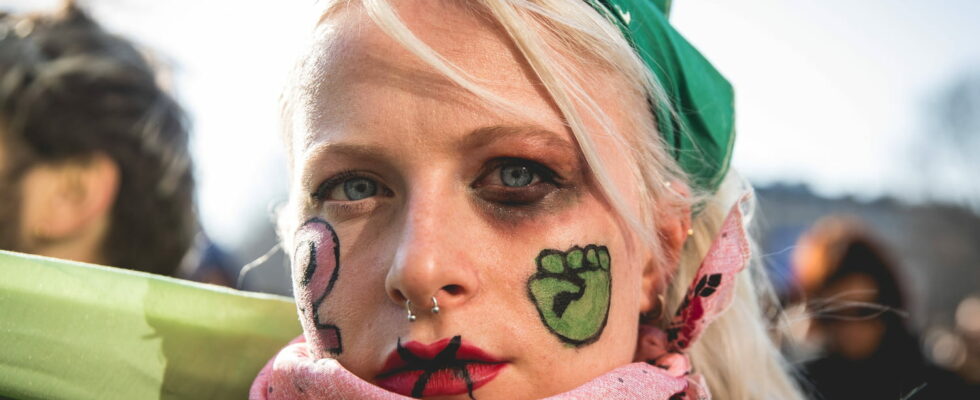WOMEN’S DAY. Every year, International Women’s Day falls on March 8. Who chose this date and since when does it exist? Find out all about the origins of this day of awareness and mobilization dedicated to the fight for women’s rights.
[Mis à jour le 6 mars 2023 à 18h55] Women’s Day, real time of struggle for equality or simple commercial program? Although Women’s Day has many detractors, in particular because brands are using it to promote themselves (more or less successfully), it was first set up by the United Nations in 1977 to bring the rights of women to the level of those of men.
The latter also have their own day since 1997. Formalized in France in the early 80s by Francois Mitterrand, Women’s Day draws its source from the fights waged by working women and suffragettes for their rights at the dawn of the 20th century. If, since then, the movement for the emancipation of women has only grown, at least in the industrialized countries, inequalities remain in the 21st century.
We could have expected a different evolution of the figures on the subject: according to a study YouGov carried out in 2021, Only 64% of French people consider women and men to be equal, compared to 69% in 2015. According to the same survey, 88% of the inhabitants of France questioned believe that women and men should generally receive equal pay… versus 93% in 2015. The study also gives other figures relating to lived experience of women in terms of society’s perception of their strength and intelligence: faced with the statement “Someone assumed that I was weak because of my sex”, 54% of the women surveyed declared that this situation has already happened to them, compared to 13% of men surveyed. 36% of women in the YouGov panel also admit that someone has already assumed that they are “less intelligent because of their gender”, compared to 16% of men.
A different theme is designated by theUN at each edition of the “Women’s Day” (JIF) (“Womens Day” in English). For 2023, this is “For an inclusive digital world : innovation and technologies for gender equality”. A theme, specifies the United Nations, “associated with the priority theme of the 67th session of the Commission on the Status of Women (CSW-67), namely “Innovation, technological change and education for the digital age to achieve gender equality and empower all women and girls”.
If the United Nations formalized this celebration (and its date) in 1977 and it was established in France in 1982 by President François Mitterrand, the origin of Women’s Day, which has become “Women’s Rights Day” , is to be sought further back in time: at the time of the struggle of working women for better working conditions, and that of the suffragettes for the right to vote, in the first part of the 20th century. In 1957, the newspaper l’Humanité saluted the centenary of March 8, 1857, the day when “the women garment workers of the city of New York went to parade in the streets, like men, carrying placards and banners “for better working conditions and respect for their dignity. In 1908, on June 21 this time, it was the turn of 250,000 suffragettes to demand the right to vote for women in London. A late 19th – early 20th century with a taste for emancipation that would encourage the emergence of International Women’s Rights Day, decades later. The first International Women’s Day took place on March 19, 1911 (in Europe and the United States) and was already advocating for more rights.

After the signing of the United Nations Charter in San Francisco in 1945 to proclaim gender equality as a fundamental right, demonstrations multiply once a year around the world for gender equality. These days are also an opportunity to take stock, particularly in figures, of the current situation. Associations of activists also take the opportunity to celebrate recent achievements as well as to voice the demands that remain on the agenda.
- “To call women the weaker sex is a defamation; it is the injustice of man towards woman. If non-violence is the law of humanity, the future belongs to women“.Gandhi
- “Wherever man has degraded woman, he has degraded himself”. Charles Fourier
- “The woman would truly be the equal of the man the day when, to an important position, an incompetent woman would be designated”. Francoise Giroud
- “Women are not wrong at all when they refuse the rules of life that are introduced to the world, especially since it is men who have made them without them”. Michel de Montaigne
- “Only women really see things. Men only ever have one idea”. Marcel Ayme
- “Simple, strong, loving art and the ideal, brave and free too, the woman of tomorrow will want neither to dominate nor to be dominated“.Louise Michel
►Discover other special quotes “International Women’s Rights Day” by clicking here.
The choice of March 8 as a date dedicated to women’s rights comes to us from communist Russia. In 1921, Lenin already initiated March 8 as “International Women’s Day”, in memory of the first demonstration to have launched the Russian Revolutionin 1917. That year, Russian workers had decided to go on strike on the last Sunday of February in order to demand “bread and peace”. It was February 23, but in the Julian calendar… The date will become March 8 in our Gregorian calendar. It will be necessary to wait until 1977, in full sequence of relaxation between the blocks of the East and the West during the Cold Warfor the United Nations to adopt this calendar day after hesitating between several dates, such as March 19, a memory of the first parades in the United States in 1911.
